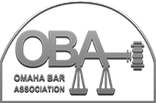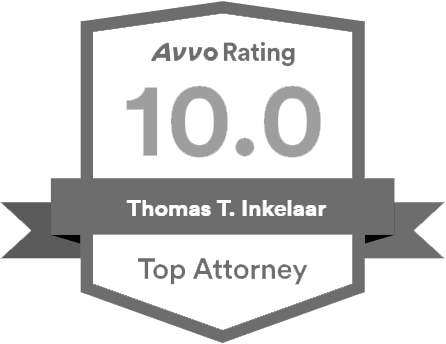Driving is a crucial part of daily life for millions, but it comes with undeniable risks. Each year, thousands of people suffer serious injuries or even lose their lives in motor vehicle accidents. These incidents bring not only emotional and physical pain but also significant financial burdens—medical bills, lost wages, and vehicle damage can quickly add up.
While not all accidents are avoidable, many can be prevented with simple, proactive safe driving habits. Whether you’re a seasoned driver or just starting out, adopting these best practices can greatly reduce your chances of being involved in a collision. In this guide, we’ll cover essential tips for safe driving, delve into common causes of accidents, and explain the importance of seeking professional legal help if you’re involved in an incident.
By staying informed and prepared, you can protect yourself, your passengers, and everyone on the road. Let’s dive into the best ways to stay safe behind the wheel.
Why Safe Driving Matters
Safe driving goes beyond just following traffic laws; it’s about adopting a mindset that prioritizes safety for everyone on the road. According to the National Highway Traffic Safety Administration (NHTSA), a staggering number of car crashes each year are caused by human error—and most of these are preventable.
Key Statistics:
-
Over 38,000 people lose their lives in car accidents each year in the U.S.
-
Distracted driving accounts for about 25% of all fatal crashes.
-
Speeding is a factor in nearly one-third of all traffic-related fatalities.
By making safe driving a habit, you not only protect yourself but also avoid unnecessary legal complications. If you find yourself in an accident, knowing when to seek legal help from car accident lawyers in Omaha, Nebraska can make all the difference.
Mastering Defensive Driving
Defensive driving is a proactive approach to driving safely, where you anticipate potential hazards and react accordingly. Here are key techniques to help you stay safe:
-
Stay Alert and Minimize Distractions
-
Keep your hands on the wheel and eyes on the road at all times.
-
Put your phone away while driving.
-
Keep conversations with passengers brief and avoid distractions.
-
Always be on the lookout for pedestrians and cyclists.
-
-
Maintain a Safe Following Distance
-
Use the three-second rule to keep a safe distance from the car in front of you.
-
Increase your following distance in poor weather conditions.
-
Be especially cautious around large trucks, as their size can block your view of the road.
-
-
Adhere to Speed Limits and Traffic Signals
-
Speeding reduces your reaction time and makes accidents more severe.
-
Always follow posted speed limits and adjust your speed based on road conditions.
-
Never run red lights—always stop at traffic signals and yield as required.
-
-
Drive Cautiously in Poor Weather
-
Slow down in rain, snow, or fog.
-
Use your headlights when visibility is low, even during the day.
-
Avoid sudden braking on slippery or wet roads.
-
These defensive strategies are designed to reduce your risk of an accident and keep you out of situations that might require you to consult an auto accident attorney near me.
Common Causes of Car Accidents and How to Avoid Them
By understanding the most common causes of accidents, you can better protect yourself on the road:
-
Distracted Driving
-
Solution: Keep your phone out of reach and stay focused on the road.
-
-
Driving Under the Influence
-
Solution: Never drive drunk. Use a designated driver or opt for a rideshare service.
-
-
Speeding
-
Solution: Avoid rushing by planning your route and adhering to speed limits.
-
-
Reckless Driving
-
Solution: Stay calm and avoid aggressive driving behaviors such as tailgating or weaving through traffic.
-
If you’re involved in an accident caused by another driver’s negligence, it’s essential to seek guidance from motor vehicle accident attorneys near me to ensure your rights are protected.
Who’s Liable in a Car Accident?
In the aftermath of a car crash, determining liability is crucial for securing compensation. Liability is often assigned based on negligence, and several factors help determine fault:
Key Factors in Determining Liability:
-
Traffic Violations – Actions like running a red light or speeding can point to negligence.
-
Witness Testimonies – Eyewitness accounts provide valuable insights into the accident.
-
Police Reports – These documents offer an impartial record of what happened.
-
Surveillance Footage – Video from traffic cameras or nearby businesses can confirm details.
-
Vehicle Damage Analysis – Where and how the damage occurred can help establish fault.
If you’re involved in a collision, consulting with auto accident attorneys in Omaha, Nebraska can help clarify liability and ensure you receive fair compensation for your injuries or damages.
What to Do After a Car Accident
Even the most cautious drivers can find themselves in an accident. Knowing the right steps to take immediately after a crash can help protect your rights and strengthen your case should you need to take legal action.
-
Check for Injuries – Ensure everyone is safe and call 911 if needed.
-
Move to a Safe Location – If possible, move your vehicles out of traffic to avoid further incidents.
-
Call the Police – A police report is crucial for documenting the accident.
-
Exchange Information – Gather names, contact details, and insurance information from everyone involved.
-
Document the Scene – Take photos of the accident site, the vehicles involved, and any visible damages.
-
Seek Medical Attention – Even if you feel fine, injuries can surface later, so it’s important to get checked out.
-
Contact an Attorney – Consulting Omaha car accident attorneys can help protect your legal rights and ensure fair compensation.
FAQs
Q: What if the other driver doesn’t have insurance?
A: Your uninsured motorist coverage may help cover the damages, but an attorney can guide you through the process and explore other options.
Q: How long do I have to file a claim?
A: In Nebraska, you typically have four years to file a personal injury claim and three years for property damage. However, it’s best to act quickly.
Q: Should I accept the first settlement offer from my insurance company?
A: Often, the first offer is lower than what you deserve. It’s always wise to consult with a lawyer before accepting any settlement.
Q: What if I was partially at fault for the accident?
A: Nebraska follows comparative negligence rules, meaning you can still recover damages if you’re less than 50% at fault for the accident.
Inkelaar Law: Your Trusted Legal Partner
At Inkelaar Law, we understand the complexities of car accidents and the legal challenges they present. Our experienced Nebraska car accident lawyers are here to help victims like you navigate the aftermath and secure the justice you deserve.
If you’ve been involved in an accident, contact Omaha car accident attorneys at Inkelaar Law today for a free consultation.
Conclusion
Safe driving is critical for preventing accidents and saving lives. But if you find yourself in a crash, expert legal representation can ensure you’re compensated fairly and help you recover more effectively.
For trusted legal guidance, reach out to Inkelaar Law today.
Disclaimer: The information contained in this article is for general educational purposes only. This information does not constitute legal advice, is not intended to constitute legal advice, nor should it be relied upon as legal advice for your specific factual pattern or situation. For specific legal advice, please consult with an attorney who is qualified to handle your case.
Keywords: Car crash lawyers, car accident law firms near me, auto accident law firm near me, car accident attorney near me, auto accident lawyers near me, car collision lawyers near me, lawyer for car accidents near me, automobile accident attorneys near me, motor vehicle accident attorneys near me, lawyers for auto accidents near me, automobile accident attorneys, auto accident attorneys, truck accident attorneys, trucking accident attorneys, the best attorneys for car accidents, the best motor vehicle accident attorneys, accident lawyers near me, the best lawyers for car accidents, car wreck attorneys, the best auto accident attorneys near me, the best car accident attorneys near me, the best auto accident lawyers near me, car accident injury law firms, wrongful death attorneys near me, automobile accident injury attorneys, car wreck law firms, injury lawyers for motorcycles, motor vehicle accident law firms, accident lawyers in Omaha, injury attorneys in Omaha, Nebraska, personal injury law firms in Omaha, personal injury lawyers in Omaha, Nebraska, personal injury attorneys in Omaha, Nebraska, accident lawyers in Omaha, injury attorneys in Omaha, Nebraska, personal injury attorneys in Omaha, Nebraska, personal injury lawyers in Omaha, Nebraska, lawyers for car accidents with no injuries, auto accident attorneys for cases with no injuries, Omaha, Nebraska personal injury attorneys, the best workers’ compensation attorneys near me, Omaha auto accident lawyers, car accident attorneys in Omaha, Nebraska, Omaha car accident lawyers, Omaha car accident attorneys, auto accident attorneys in Omaha, car accident lawyers in Omaha, Nebraska, auto accident attorneys in Omaha, Nebraska, Nebraska car accident lawyers, Nebraska car accident attorneys, car accident attorneys in Omaha, Nebraska auto accident attorneys, auto accident lawyers in Omaha, car accident lawyers in Omaha, negligence attorneys near me, auto damage lawyers, free consultation lawyers for car accidents, workers’ compensation attorneys in Omaha, Nebraska, Nebraska personal injury attorneys, personal injury attorneys in Nebraska, the best accident lawyers, car wreck lawsuit attorneys, motor vehicle accident lawsuit attorneys, auto accident litigation attorneys, vehicle accident lawsuit attorneys, car accident litigation attorneys, car accident litigation specialists, driving during snow accidents, head trauma from car crashes, head trauma in car accidents, car crash head injuries, car accident head trauma, auto accident head injuries, head injuries in car accidents, brain injuries from car accidents, brain injuries in car accidents, and head trauma from car accidents.







